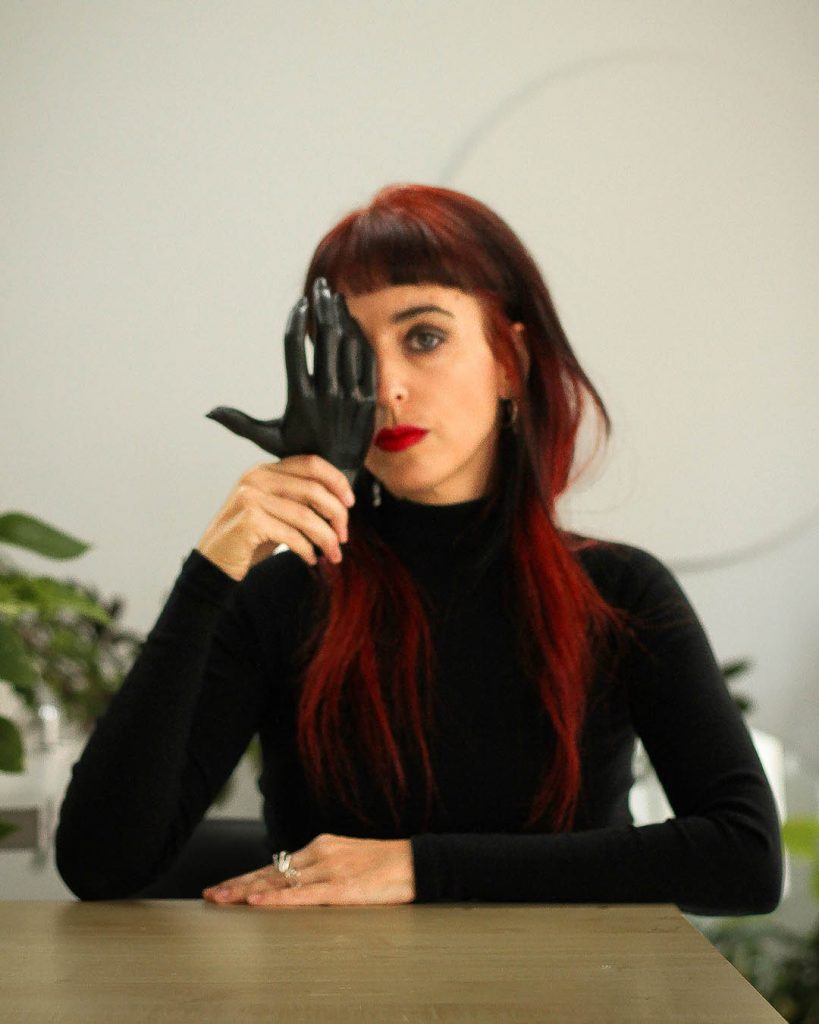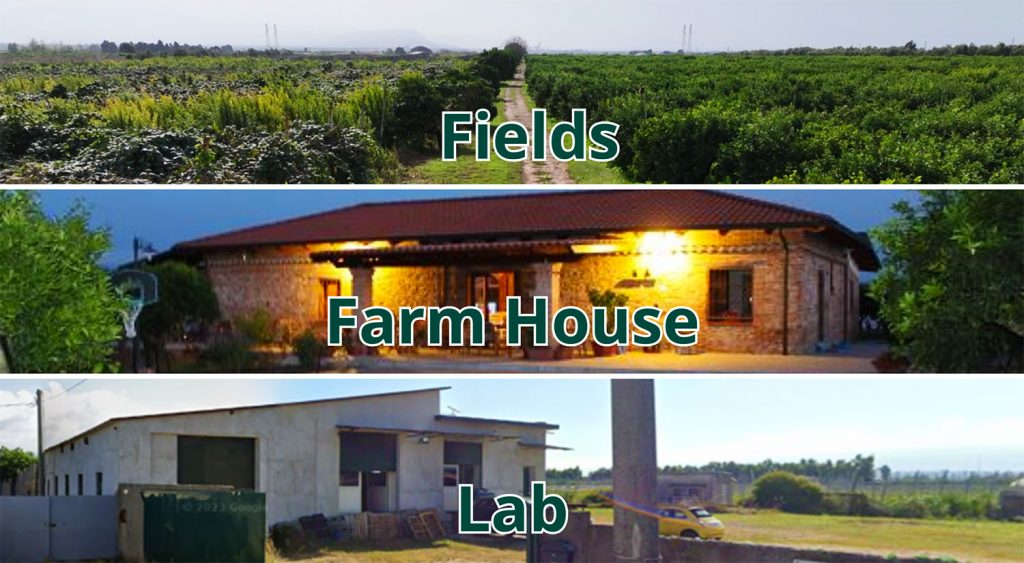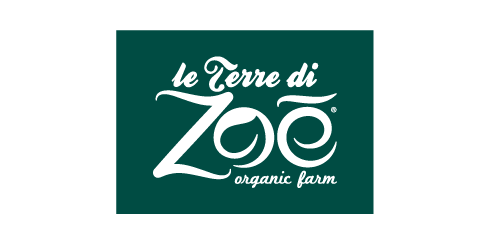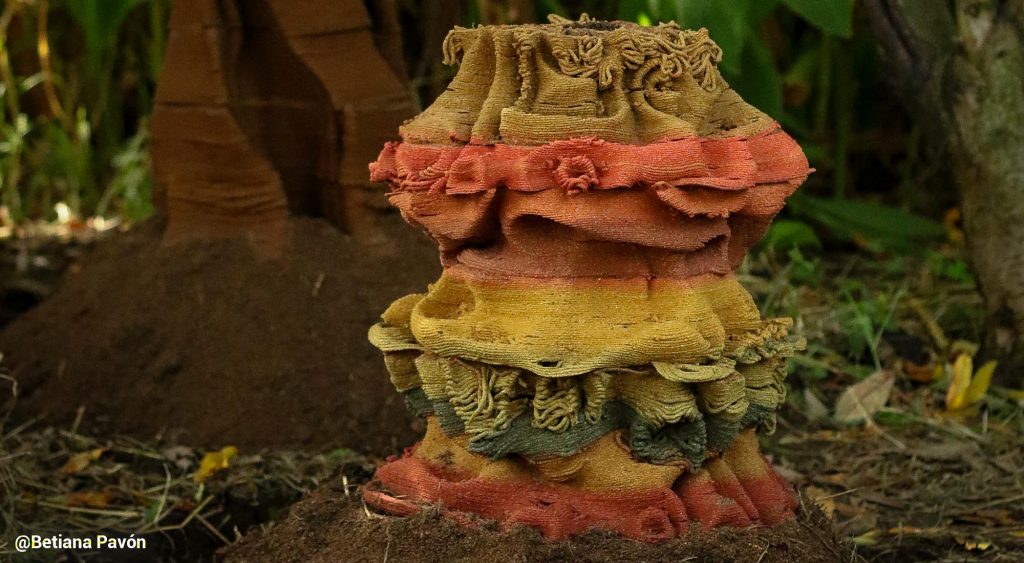HUNGRY ECOCITIES : Paths to progress Experiments
+ PROJECT
COMPOSTABLE ALTAR: Offering to the Earth
Betiana Pavón & Le Terre di Zoè
SUMMARY
Compostable Altar is a biodesign experiment that brings together art, science, and regenerative agriculture. Developed in collaboration with Le Terre di Zoé, an agroecological farm in Calabria, southern Italy, the project explores circular strategies for transforming agricultural by-products into living installations that decompose and return nutrients to the soil.
The altar functions as both a sculpture and an ecological prototype: a large-scale, biodegradable structure 3D-printed from biomaterials developed from local and seasonal organic waste. During the research process, ecological monitoring using sensors and control of microclimatic conditions allowed data to be collected on the interaction of the soil with the decomposition of biomaterials — including temperature, pH, humidity, electrical conductivity, and nutrient dynamics. This system generated a feedback loop between decomposition and regeneration.
Through a data-driven parametric design process and AI predictive models, the project visualizes the metabolic dialogue between human creation and natural transformation. Compostable Altar proposes a new type of ritual: one that celebrates impermanence, reciprocity, and the intelligence of living systems.
As a replicable, open-source methodology, it contributes to rethinking production, waste, and material culture within the agri-food system, offering an alternative vision in which design becomes an act of care and regeneration.

DEVELOPED PROTOTYPES:
Recipes and process to transforms agricultural waste into biodegradable, data-driven sculptures that enhance the soil quality. Combining biomaterial research, digital fabrication, and AI, it celebrates circularity and reimagines design as a living, regenerative process
UPDATES
● Reflections after the 1st European Symposium on Cultivated Biodiversity and Local Food Policies
STARTS.EU, 05/06/2025
+ ARTIST
Betiana Pavón

Argentina
Born in Argentina, she trained and explored various fields such as Architecture, Interior Design, Photography, Styling, and Art Direction. Since 2018, she has lived in Spain, where she graduated from the Fabricademy programme at Fab Lab Barcelona (IAAC), focusing on the intersection of textiles, digital fabrication, and biology. She later became a collaborator and instructor.
“The PPE allowed me to merge artistic intuition with scientific methodology, proving that collaboration across disciplines can generate truly regenerative and circular design practices.”
Betiana Pavón
+ SME
LE TERRE DI ZOÈ

Organic farm
Calabria, ITALY
Le terre di zoè is an organic farm, family managed, handed down from three generations and located in Calabria, in the south of Italy.
Over the decades, foresight and research have led to significant changes in both cultivation and management. From purely olive cultivation, they transformed their farm firstly into citrus cultivation and later they extended into cultivation of different kinds of fruits. When they understood that a farm can have different aspects and can have a social value, they transformed it into a multifunctional business, where they embraced primary production, transformation, agritourism and farm education.
Respecting tradition their aim is spreading the true culture of organic food, which must not only be healthy, but also authentic and has to be produced in a sustainable way, respecting environment and people.


The HungryEcoCities project has received funding from the European Union’s Horizon Europe research and innovation programme under grant agreement 101069990.
